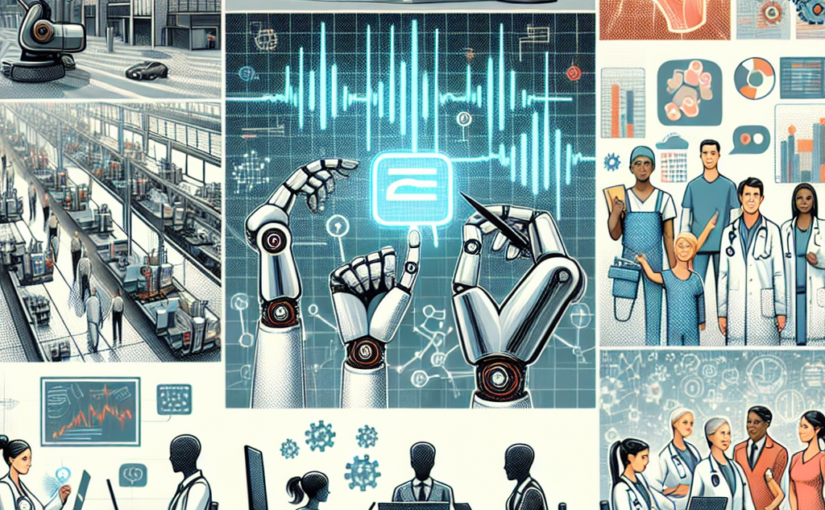In an era where artificial intelligence is transforming industries at breakneck speed, understanding its impact on employment has become crucial. Recent studies reveal that AI could create up to 50 million new jobs globally by 2030, fundamentally reshaping the workforce landscape.
The Automation Reality
While AI is automating routine tasks across industries, it’s simultaneously creating unprecedented opportunities. Manufacturing facilities now employ robots for assembly and quality control, but they also need skilled professionals to manage these systems. This shift demonstrates how automation often enhances rather than replaces human capabilities.
Emerging Career Opportunities
The healthcare sector exemplifies AI’s transformative power. Medical facilities now require data analysts and AI-assisted healthcare providers, combining traditional medical expertise with technological prowess. Similarly, the financial sector has witnessed the emergence of specialized roles in risk management and AI-driven analytics.
Essential Skills for the AI Era
Success in this evolving landscape requires a strategic blend of technical and soft skills:
Technical Proficiency:
– Data analytics expertise
– Basic programming knowledge
– Machine learning fundamentals
– AI systems management
Critical Soft Skills:
– Adaptability
– Creative problem-solving
– Continuous learning mindset
– Collaboration with AI systems
Training and Development Pathways
Non-technical professionals can prepare for the AI revolution through various channels:
– Online certification programs
– Industry-specific workshops
– Vocational training courses
– Corporate upskilling programs
The Job Security Question
While concerns about job displacement exist, historical patterns suggest technological advancement creates more opportunities than it eliminates. AI’s role appears to be complementary rather than replacement-focused, enhancing human capabilities rather than rendering them obsolete.
Looking Ahead
The future workplace emphasizes flexibility and hybrid arrangements. Organizations are increasingly adopting skills-based hiring practices, focusing on capabilities rather than traditional qualifications. This shift presents opportunities for professionals willing to adapt and evolve.
The key to thriving in this AI-driven economy lies in embracing change while developing relevant skills. As AI continues to evolve, those who adapt and upskill will find themselves at the forefront of exciting career opportunities.
Professionals can start preparing today by:
– Identifying AI trends in their industry
– Developing relevant technical skills
– Strengthening adaptive capabilities
– Building networks in AI-related fields
This technological revolution isn’t just changing jobs – it’s creating entirely new career pathways. The future belongs to those who embrace these changes and position themselves to leverage AI’s transformative power.

